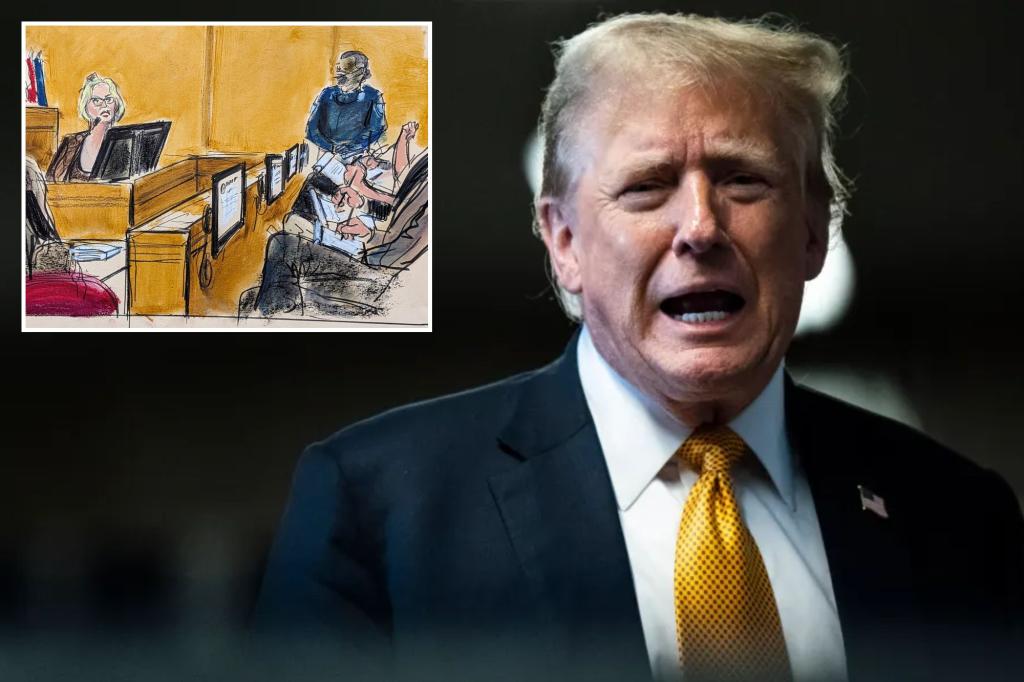A Manhattan jury consisting of five women and seven men is currently deciding whether to convict former President Donald Trump of 34 felony counts related to concealing a $130,000 hush money payment to Stormy Daniels before the 2016 election. Among the jurors are individuals from various backgrounds, including two lawyers, a retired wealth manager, a speech therapist, an engineer, and some who have commented on Trump’s public persona. The panel is tasked with determining whether Trump falsified 34 different business records connected to the hush money payment.
Evidence presented during the trial has shown that Trump’s former lawyer, Michael Cohen, received monthly payments from Trump’s trust account, and there were documents detailing a scheme to pay Cohen a substantial sum of money. Despite this, the documents described the payments to Cohen as related to “legal services” rather than hush money to silence Stormy Daniels. Jurors must assess whether Trump intentionally falsified business records to cover up alleged crimes related to getting elected via unlawful means.
In order to find Trump guilty of falsifying business records, the jury must establish that Trump fudged the records to conceal another illegal act, potentially involving a conspiracy to unlawfully influence the 2016 election. Testimony from David Pecker, former publisher of the National Enquirer, indicated collaboration with Trump and Cohen to bury stories and publish favorable pieces about Trump. The jury must determine if Trump had the intent to cover up this alleged conspiracy beyond a reasonable doubt.
The jury’s decision hinges on whether they believe the hush money payouts to Daniels and Karen McDougal violated federal campaign finance laws by exceeding donation limits, violated tax laws, or involved the falsification of additional business records. The judge outlined three potential paths for identifying the unlawful means involved in the conspiracy. Ultimately, the jurors must unanimously agree on the presence of unlawful means to convict Trump, regardless of differing beliefs on the exact nature of the illegality.
If the jury chooses to convict Trump, they must reach a unanimous decision. However, if they fail to agree on all counts, they may deadlock, leading to a mistrial. A mistrial would delay any potential retrial until after the upcoming presidential election. The verdict will determine whether Trump is found guilty of the charges related to the hush money payment and alleged cover-up. The trial has been ongoing for seven weeks, with the jury carefully considering the evidence and testimony before making a decision that could impact Trump’s legal future.


